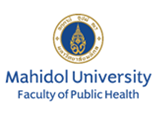[Event Report] Global Health Education Program (G-HEP) 2021-2022 – Fieldwork Trip Tokyo, Japan (August 7 – August 13, 2022)
date : 9/20/2022
Tags: Global Health
![[Event Report] Global Health Education Program (G-HEP) 2021-2022 – Fieldwork Trip Tokyo, Japan (August 7 – August 13, 2022)](https://hgpi.org/en/wp-content/uploads/sites/2/ghep2021-11-01.jpg)
Health and Global Policy Institute (HGPI) and the Faculty of Public Health at Mahidol University held a second fieldwork training in Japan as part of the jointly organized Global Health Education Program (G-HEP) 2021-2022, centered on, “solving health issues of urban migrants under the COVID-19 pandemic”.
Succeeding an enriching fieldwork training in Bangkok, Thailand this July, we welcomed six participants from Thailand, Myanmar, Nepal, and Bhutan and faculty from Mahidol University who joined together with program participants based in Japan.
The week-long fieldwork training in Japan that took place around Tokyo and Kanagawa aimed to identify unique health challenges of migrant urban populations in the country and to gain a deeper understanding of the background of the problems and work toward finding solutions through on-the-ground research. Throughout the week, participants met with and attended lectures from healthcare professionals, local NPOs/NGOs, and policy makers to help participants develop a cross-sectoral perspective of the issues and see how a collaborative effort is important for addressing and providing solutions for the problems.
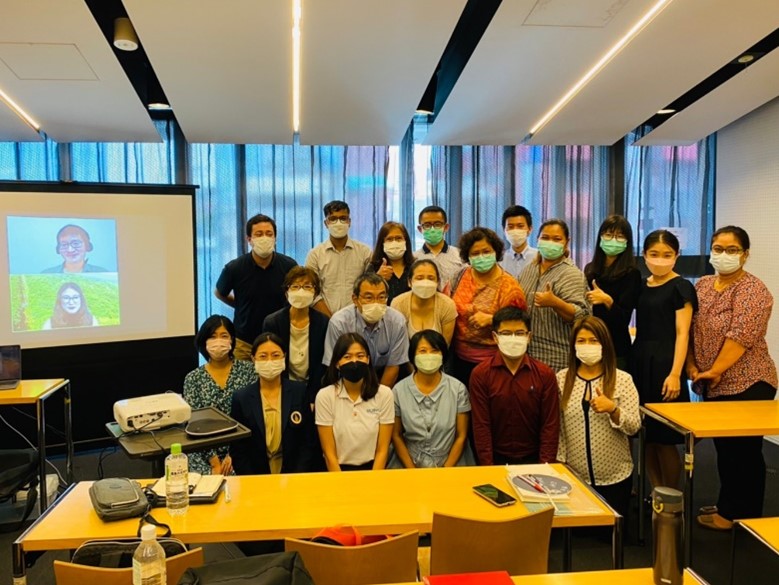 On healthcare issues, participants heard from Dr. Masami Fujita, Director, Global Networking,Bureau of International Cooperation, National Center for Global Health and Medicine, Japan on how their department in the hospital supports migrant communities and patients. He also spoke about his involvement in the Migrants’ Neighbor Network & Action Project (MINNA). Through surveying migrants living and working in Japan during the COVID-19 crisis, he shared what he learned about the challenges they faced, in accessing information, support, and the systems they need.
On healthcare issues, participants heard from Dr. Masami Fujita, Director, Global Networking,Bureau of International Cooperation, National Center for Global Health and Medicine, Japan on how their department in the hospital supports migrant communities and patients. He also spoke about his involvement in the Migrants’ Neighbor Network & Action Project (MINNA). Through surveying migrants living and working in Japan during the COVID-19 crisis, he shared what he learned about the challenges they faced, in accessing information, support, and the systems they need.
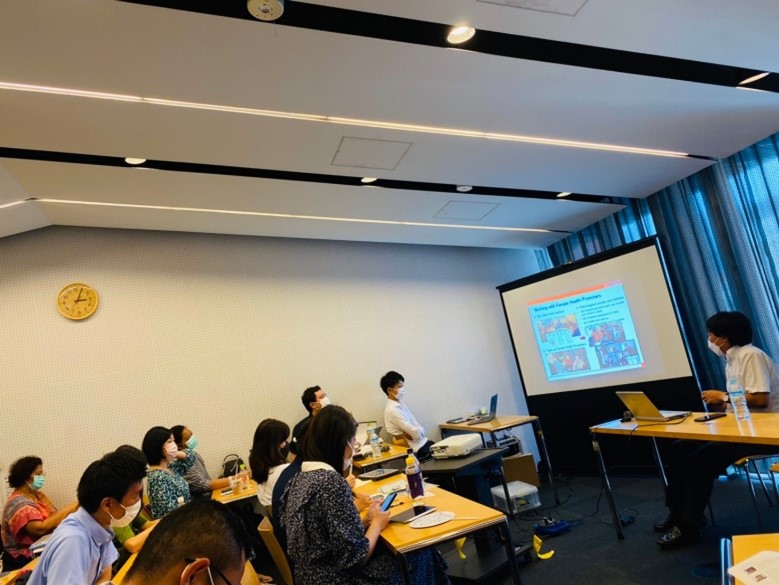
They also heard from Dr. Takashi Sawada, a physician at the Minatomachi Medical Center in Kawasaki, located in a predominately diverse migrant area. He talked about migrants’ health and health access and shared clinical best practices of how to reach and provide health care services based on his experiences in dealing with HIV/AIDS education, access, and care for this population. In addition, Dr. Tamotsu Nakasa a physician and a representative of the NPO SHARE (Services for the Health in Asian and African Regions) had a lively discussion based on his many years of experience working on medical access in other countries as a physician.
Participants were also able to get a more personal perspective from local NPOs/NGOs. Mr. Akihiro Okawa of NPO Solidarity Network with Migrants Japan (SMJ), Ms. Yoko Iwamoto of MIC Kanagawa, Ms. Yukako Takada ofCitizen’s Network for Global Activities(CINGA) , Ms. Hisano Niikura of Kalabaw no Kai, and Mr. Pop Prach Pongkijvorasin of CHARM, all shared about their grassroots activities and advocacy, working directly among migrant communities.
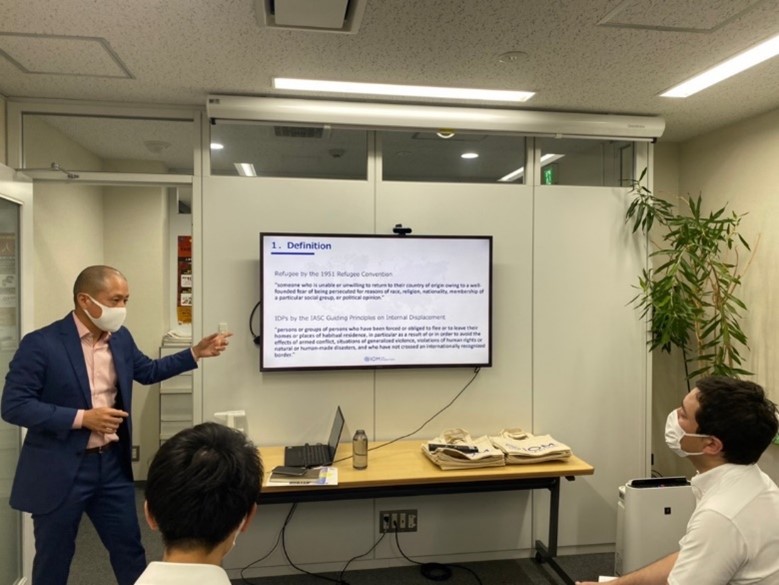 Furthermore, participants visited the International Organization for Migration (IOM) part of the United Nations (UN) system, where representatives Mr. Daihei Mochizuki along with Dr. Kaoru Takahashi and Dr. Aiko Kaji discussed the organization’s strategy and work that they do to uphold human rights for migrants, including a case study of Vietnam.
Furthermore, participants visited the International Organization for Migration (IOM) part of the United Nations (UN) system, where representatives Mr. Daihei Mochizuki along with Dr. Kaoru Takahashi and Dr. Aiko Kaji discussed the organization’s strategy and work that they do to uphold human rights for migrants, including a case study of Vietnam.
To better understand the policy agenda, participants visited the National Diet where they met with Dr. Hiroyuki Nakanishi, Officer for the Promotion of International Development of Healthcare, Medical Affairs Bureau, Ministry of Health, Labour and Welfare (MHLW) where he discussed about the current health policies Japan has for its migrant population.
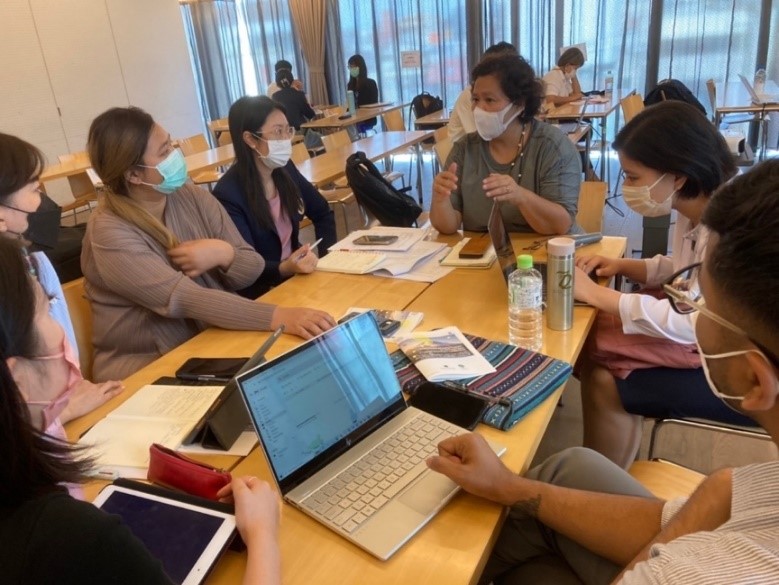 On the final day of the program, participants formed groups to reflect on what they experienced over the week. In groups they presented what they learned from the field and how this will apply to their research.
On the final day of the program, participants formed groups to reflect on what they experienced over the week. In groups they presented what they learned from the field and how this will apply to their research.
1) Thailand’s Health System and COVID-19
2) Japan’s Health System and COVID-19
3) Community Health
4) Health Technology
5) Global Health
6) Migrant Health
7) Policy Recommendations and Advocacy
8) Quantitative and Qualitative Research
■ Fieldworks
June 27 – July 2, 2022 Bangkok, Thailand
The Global Health Education Program (G-HEP) is a joint program organized by the Health and Global Policy Institute and Mahidol University, Faculty of Public Health in Thailand.
■About Mahidol University
Mahidol University is the number one university in Thailand for medical education and the first public health academic institution in Thailand.
Vision:
Be a leader in promoting population health through being a health literate faculty in ASEAN countries by 2021.
Mission:
1. To offer an outcome based public health education through being a health literate faculty.
2. To be visible as a leader in public health education, integrative and innovative research, professional academic services on the basis of good governance to promote health and longevity and the betterment of mankind.
Top Research & Recommendations Posts
- [Research Report] Perceptions, Knowledge, Actions and Perspectives of Healthcare Organizations in Japan in Relation to Climate Change and Health: A Cross-Sectional Study (November 13, 2025)
- [Research Report] The 2025 Public Opinion Survey on Healthcare in Japan (March 17, 2025)
- [Policy Recommendations] Mental Health Project: Recommendations on Three Issues in the Area of Mental Health (July 4, 2025)
- [Policy Recommendations] Developing a National Health and Climate Strategy for Japan (June 26, 2024)
- [Research Report] The 2023 Public Opinion Survey on Satisfaction in Healthcare in Japan and Healthcare Applications of Generative AI (January 11, 2024)
- [Policy Recommendations] Recommendations on Strategic Investments in Policies for Brain Health to Revitalize Japan: Hopes for the New Administration (December 1, 2025)
- [Policy Recommendations] Reshaping Japan’s Immunization Policy for Life Course Coverage and Vaccine Equity: Challenges and Prospects for an Era of Prevention and Health Promotion (April 25, 2025)
- [Announcement] HGPI Endorses the “Belém Health Action Plan” (November 14, 2025)
- [Announcement] HGPI Joins Global Green and Healthy Hospitals (August 1, 2023)
- [Research Report] Survey of Japanese Nursing Professionals Regarding Climate Change and Health (Final Version) (November 14, 2024)
Featured Posts
-
2025-12-09
[Event Report] Special Seminar “Rising to New Challenges in Health Sciences for Future Society: Novel Developments in the Field of Epilepsy in Japan and Globally” Belgium Pavilion Special Seminar, World Expo 2025 Osaka, Kansai (September 18, 2025)
![[Event Report] Special Seminar “Rising to New Challenges in Health Sciences for Future Society: Novel Developments in the Field of Epilepsy in Japan and Globally” Belgium Pavilion Special Seminar, World Expo 2025 Osaka, Kansai (September 18, 2025)](https://hgpi.org/en/wp-content/uploads/sites/2/HGPI_20250805_mental-health-expo-eyechatch.png)
-
2025-12-11
[Event Report] Core Components of Universal Health Coverage (UHC): Achieving “Healthcare Without Financial Hardship” in Asia-Pacific and Japan (December 5, 2025)
![[Event Report] Core Components of Universal Health Coverage (UHC): Achieving “Healthcare Without Financial Hardship” in Asia-Pacific and Japan (December 5, 2025)](https://hgpi.org/en/wp-content/uploads/sites/2/HGPI_20251210_Core-Components-of-Universal-Health-CoverageUHC-top.jpg)
-
2025-12-12
[Registration Open] Meaningful Involvement Promotion Project Urgent Symposium “The New Takaichi Administration and Central Social Insurance Medical Council Reform – Ensuring Patients’ Voices are Heard” (January 22, 2026)
![[Registration Open] Meaningful Involvement Promotion Project Urgent Symposium “The New Takaichi Administration and Central Social Insurance Medical Council Reform – Ensuring Patients’ Voices are Heard” (January 22, 2026)](https://hgpi.org/en/wp-content/uploads/sites/2/HGPI_20251208_urgent-symposium-1.png)
-
2025-12-12
[Registration Open] (Webinar) The 140th HGPI Seminar “Early Detection to Reduce COPD Disease Burden: Connecting Clinical Frontiers with Health Policy” (January 27, 2026)
![[Registration Open] (Webinar) The 140th HGPI Seminar “Early Detection to Reduce COPD Disease Burden: Connecting Clinical Frontiers with Health Policy” (January 27, 2026)](https://hgpi.org/en/wp-content/uploads/sites/2/hs140-top.png)
-
2025-12-16
[Discussion Points] Policy Dialogue “Considering Comprehensive Genomic Profiling from the Perspective of Patient Access: Utilizing the Medical Service Fee Reimbursement System and the Mixed Medical Services Program to Meet the Needs of Today” (November 28, 2025)
![[Discussion Points] Policy Dialogue “Considering Comprehensive Genomic Profiling from the Perspective of Patient Access: Utilizing the Medical Service Fee Reimbursement System and the Mixed Medical Services Program to Meet the Needs of Today” (November 28, 2025)](https://hgpi.org/en/wp-content/uploads/sites/2/eyecatch_Policy-Dialogue_Discussion-Points_20251128.jpg)




